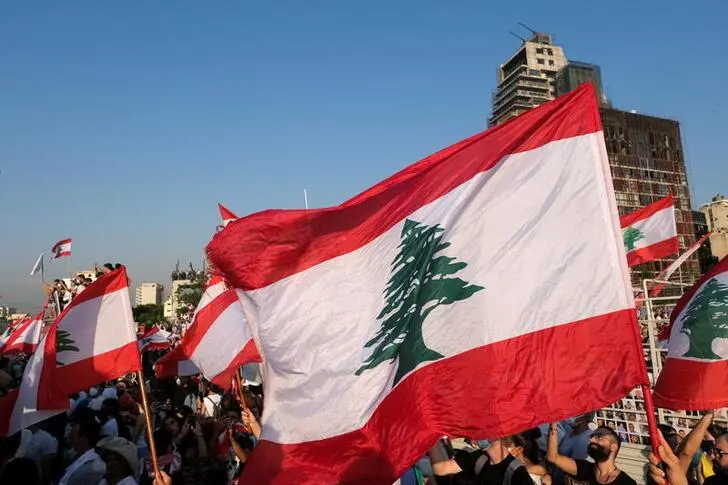PHOTO
A coalition of civil society groups under the name Shamaluna has launched election primaries in Bcharreh, Zogarta, Koura and Batroun, which together comprise the third voting district in northern Lebanon. The district is a stronghold of three well established Christian parties — the Lebanese Forces, the Free Patriotic Movement and Al-Marada.
The aim of the platform is to enable Lebanese citizens to run as candidates or to register as voters. Itsimportance extends beyond those four areas, and beyond the results of the next parliamentary election — if ithappens. The initiative paves the way for a new method of conducting politics, and unless political practice changes in Lebanon we will not be able to change the corrupt and discredited system of governance. Shamaluna is refusing any funds from dubious sources, and is instead crowdfunding directly from the people.
Lebanon boasts that it is a democracy, but it does not have a solid democratic tradition. The former prime minister Salim Al-Hoss, an academic and intellectual turned politician in the country’s darkest hours, described Lebanon as a country of many liberties but very little democracy. This description is spot on. Political life in Lebanon is distorted, mutilated and deformed; it does not have political parties, it has cults. You cannot have a democracy if the political parties that are the basis of public life are not themselves democratic. In Lebanon, the political parties are a glorified form of feudalism. Instead of feudal lords we had warlords who became “politicians” once the civil war was over.
Look at how genuine democracies organize their political parties. In the UK, after the Labour Party was defeated in the 2019 general election, Jeremy Corbyn stepped down as leader and was replaced by Keir Starmer in a fully democratic ballot of party members. In Lebanon, by contrast, political parties are no more than personality cults centered on one person — probably followed by his son, who will inevitably inherit his political legacy. Can you imagine anyone other than a Gemayel leading the Phalangist party established by Pierre Gemayel?
Yes, parties hold “elections” but they are symbolic and void of meaning. There is no political competition, there is no renewal of blood, there is no accountability —just loyalty to the “Zaim,” the chief. This is not democracy, it is dictatorship. What we call “consensual democracy” is no more than political feudalism and power-sharing among different self-selecting feudal lords.
The “leaders” who emerged during the civil war waving the banner of equality and justice turned out to be worse than the people they fought. Nabih Berri, leader of the Amal movement and Speaker of the Lebanese parliament for the past 30 years, began as a rebel against the house of Assad and its grip over the south’sShiite population — supposedly fighting their corruption and their feudalism. The irony is that Berri has becomeexactly like the people he opposed. He controls the Shiite population in exactly the same way as the Assads did, and under the pretext of being the Shiites’ defender he is pillaging the Lebanese state. The process of liberating Shiites from the Assads’ grip has become “Get up, so I can take your seat.” This will continue to happen until there is a new political culture that imposes accountability and produces genuine statesmen,rather than just more feudal leaders.
Under the Shamaluna initiative in northern Lebanon, citizens may register as candidates or as voters. To do so, they may not be affiliated to a political party, and they must be people of integrity. This is the start of a democratic process for candidate selection; it is no longer the leader of a party who dictates the selection of a candidate, it is the people themselves who make a democratic choice.
Jad Hachem, one of the founders of the new political organization Osos who is also involved with Shamaluna,said this democratization had already had reverberations even in traditional parties, whose members are now starting to demand accountability from their leaders. They are asking, Why should we have blind loyalty to the leader? Why can’t an ordinary member have an equal chance of becoming leader? The aim was long term, he said, and unless Lebanon had a healthy political culture it would not be able to make a real change in its system.
While we like to think of Lebanon as a democracy, in fact it is a country of many dictators, each of whom wants his share of the pie — which is why corruption is rampant. To fight this we need accountability in political parties, and to change the entire model we need to abolish the culture that creates dictators and cabals, and establish a new tradition of genuine democracy. The primaries in northern Lebanon are an important first step in doing that.
• Dr. Dania Koleilat Khatib is a specialist in US-Arab relations with a focus on lobbying. She is co-founder of the Research Center for Cooperation and Peace Building, a Lebanese nongovernmental organization focused on Track II.
Copyright: Arab News © 2022 All rights reserved. Provided by SyndiGate Media Inc. (Syndigate.info).





















